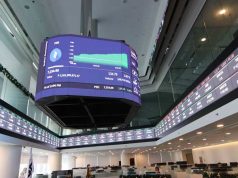THE CAGAYAN Economic Zone Authority (CEZA) is looking to initially limit the number of licenses to be issued to cryptocurrency exchanges seeking to operate in the special economic zone.
CEZA Administrator and CEO Raul L. Lambino said the agency will only issue an 25 principal licences for cryptocurrency exchanges. Each exchange will only have sub-licenses of as many as 20 to 30 traders or brokers.
Each of the exchanges will be required to initially invest $1 million (P53 million) within two years.
“There are many operating scammers who put an exchange with very little capital and they are victimizing investors. We do not want the Philippines to be a haven (for scammers) even if these scams are happening abroad. That’s why through our probity and integrity check we can determine if their transactions are just designed to entice unsuspecting people to invest in Bitcoin or whatever crypto coin that is a fraud,” Mr. Lambino was quoted as saying in a statement.
Once the licenses are issued, he said CEZA will first observe how the exchanges will operate.
“If they have ICO (initial coin offering) we will have to find if their ICO is asset-backed because this what we are saying that there are many scammers. If they offer in the market their initial (digital) coin, they maybe able to convince 50 unsuspecting investors and promise them the sun and the moon. This is the Ponzi scheme. We are not going to allow it,” the CEZA chief said.
Mr. Lambino said citizens living in the Philippines will not be allowed to invest or trade in ICOs by blocking the IP addresses of these exchanges.
“In our system, no residents of the Philippines will be able to enter because we are going to block their (exchanges’) IP address. We are going to block them. You cannot enter the IP, you cannot invest,” he said.
He also proposed that offshore companies seeking to operate crypto exchanges in the Philippines should also establish back offices in the country, and register with the Securities and Exchange Commission.
At least 21 offshore financial technology firms have so far signed memorandums of understanding with CEZA, which is hoping to become the “Silicon Valley of Asia.” — Janina C. Lim



